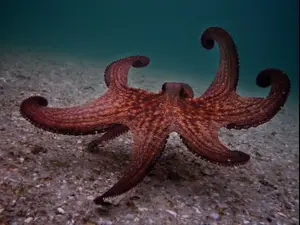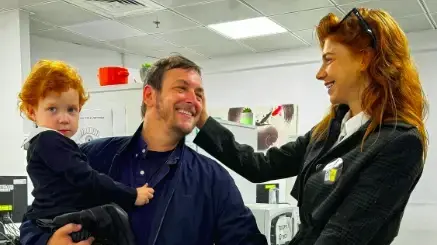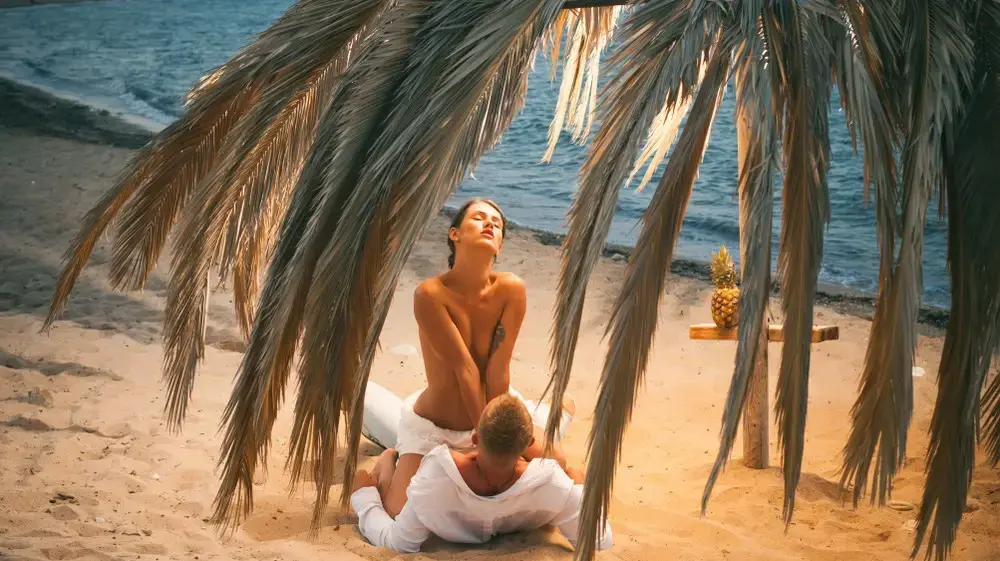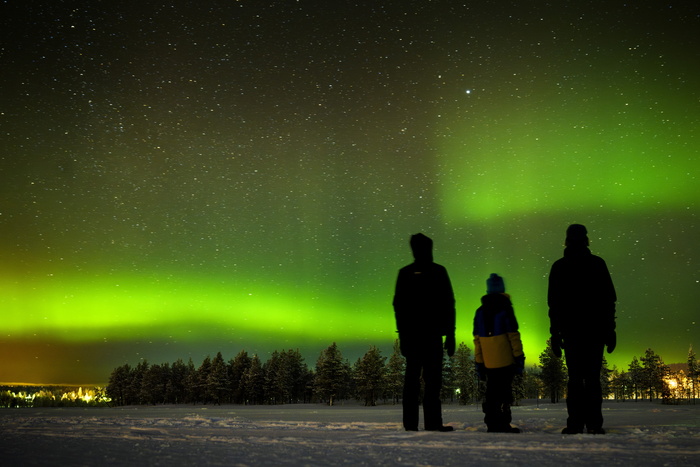Tourism
news
Everyone wants to sleep in the field: this is how night parking has become the most sought-after product this year
The effects of the corona, the increase in population and the fact that there is no foreign country, made Israelis more out in nature and also spend the night in it, especially in overnight campgrounds, upgraded with water facilities, wind walls for a tent and even campfire stands. All to enjoy nature but also to preserve it
Tags
Parking lots
Nature and Parks Authority
camping
Speak
Ziv Reinstein
Tuesday, April 20, 2021, 09:10 Updated: 11:02
Share on Facebook
Share on WhatsApp
Share on general
Share on general
Share on Twitter
Share on Email
0 comments
Infinity pool at Address Beach Resort in Dubai
My octopus teacher
Passenger load in Nahal Tavor on Passover 2021
After about a year: the Taba crossing opens and the vacationers return to Sinai
Har Yehoram overnight parking lot in the Eilat Mountains Nature Reserve
Digital nomads
The new visitor center of Timna Park
Ein Juhader Guest Pool
Ferrari and Lamborghini cars in Dubai
Tenant Air B&B found a secret room in the apartment
The Mitzpeh Makhtesh overnight campground in the Negev (Photo: Ziv Reinstein, Editing: Nir Chen)
There are not many good things that the corona has brought with it, but if one thing can be attributed to it - it is our connection to nature. The need for social distance that meets our vacation needs that can not exist abroad in the past year, made hundreds of thousands of Israelis go out and get to know the spaces and hiking trails in the country.
The fact that hotels in Israel were closed for months, in addition to the desire to reduce the vacation among travelers. Employment in the Corona year has led to a congestion of military travelers on free or discounted night camps in open spaces and nature reserves. In addition, population growth in the country (from three million people in the 1960s to nine million today), as well as reduced open space for construction and agriculture. Our hiking areas.
All of these have recently led to the development of a program at the Nature and Parks Authority, which will allow hikers to go more into nature and spend the night there, and on the way also maintain a balance that will not disturb animals and vegetation, since nature is their only home.
More on Walla!
Sleep without paying: 5 free overnight campgrounds in the heart of nature
To the full article
More on Walla!
Without Paying and Without Masses: My Secret Campsites
Sleep without paying: 5 free overnight campgrounds in the heart of nature
For spontaneous travelers: 7 free campsites and a side trip
You do not deserve to suffer: the device that is praised by doctors wins pain, and you have the opportunity to try it at home
Sleep in nature without disturbing it.
Mitzpe HaKatesh Night Camp (Photo: Walla !, Ziv Reinstein)
Crescent containing gravel stones for more comfortable accommodation in an overnight parking lot (Photo: Walla !, Ziv Reinstein system)
"The corona is a direction reading of what will happen here in the coming years"
As part of the program, the southern area was selected as a pilot, and night parking lots were set up at various levels - from remote parking lots where you can only stay with your tent to those where you will find sockets for charging your mobile for a fee. In addition, new hiking trails were announced and marked, directional signage was installed and even water tanks were installed in the Negev and the Arava - an area where it is more difficult to hike for days without burying water.
"The open areas should eventually reach travelers," says the director of the Southern District of the Nature and Parks Authority, Gilad Gabay, in a call to Walla! Tourism. According to him, the corona trend has given the RTG a direction in what is going to happen in Israel in the coming years in terms of numbers of travelers and the connection to nature. "Things need to be managed so that nature does not harm and the visitor experience is good. We understood that a system needs to be established that will take care of the open areas - education and information, installation of infrastructure of paths, lookouts, overnight parking lots, that there is parking near the accommodation, that there are parking lots at all levels, "he adds.
For example, the overnight parking lots in Nahal Tselim and on the Amiaz Plateau in the southern Judean Desert have been upgraded so that the vehicle can park next to the hikers.
In other parking lots, such as the Nahal Akaravim parking lot, the Mitzpe Makhtesh parking lot (small) and the Yehoram parking lot in the Eilat mountains, crescents have been built - low stone walls in the shape of a moon tens of cm high, which protect against desert winds at night. "Cm down, you feel like you have your corner," explains Gilad. In addition, in those crescents, they scattered small pebbles that are a more convenient substrate for setting up a tent and laying out mattresses and sleeping bags. In addition, they created dedicated niches in the fire near the accommodation points, so not everyone Will decide where to set up a section and destroy the ground and leave black spots of coals in the area.
More on Walla!
Wet camping: 8 offers for overnight stays within touching distance of the water
To the full article
Crescents were established to protect against his desert spirit.
The Mitzpeh Crater (small) night camp (Photo: Walla !, Ziv Reinstein)
Traveler numbers have been rising in the past year.
Birkat Tzafira overnight parking lot last February (Photo: Nature and Parks Authority)
Take care of all types of travelers
The plan to maintain the balance between the hiker and nature, also means taking care of different types of hikers, from pedestrians, through cyclists and horse riders to jeeps, whose popularity has increased in recent years and those of 4X4 vehicles. "There are diverse hiking audiences, and it is important to adjust the visitor's expectations to the place so that the hiker will experience wildlife as it is and still get a camping base," says Nature and Parks Authority inspector in the Middle Arava Arie Rosenberg.
Arie explains that one of the purposes of the upgraded night camps is to create a divider between the cars and the tents, and also to separate large groups of families or chauvinists who will be sheltered on the outskirts of the night camp, not to get mixed up in the central bustle of large or organized groups. Beyond that, in some of the parking lots, ecological toilets will be set up, such as with sawdust, so that we may finally stop seeing the wet wipes and toilet paper scraps that stick to the bushes in nature (which of course also need to be collected when finished).
The PA also considered the issue of water in the south and gave a solution in some of the night camps and even created a new position called "Trail Supervisor", which is responsible for all components of the promenades along the route (signage, information, services, cleaning) including the water issue.
"We understood that water is a significant limitation for travelers, who need to plant and plan in advance where they will be, and we understood that if we want to allow easier promenades - a solution must be found," says Gilad.
As a result, the PA began installing pipes from sources near the night camps from Eilat in the south to the Yatir region in the northern Negev, with most places having water tanks that will be buried in the ground and a faucet from which a water filling came out.
"We hope people will understand that it is used for drinking and not for bathing or other uses, because the volume of the containers is limited," he adds.
Used to fill water for hikers.
Water tank near the Mitzpeh Makhtesh overnight campground (Photo: Walla !, Ziv Reinstein)
One of the goals is to separate large groups from families.
Nahal Akaravim night camp (Photo: Walla !, Ziv Reinstein)
The location of the parking lots has a decisive effect on the intensity of their impact on the environment
The issue of finding the balance between the two, nature and the traveler, was also at the heart of a new study conducted recently by the Faculty of Architecture and Urban Planning at the Technion, as part of Gal Geissler's master's work, led by Prof. Assaf Schwartz, and funded by Dr. Agate Colony. Nature and gardens The study was conducted in small overnight campsites throughout the Negev and examined for the first time the effect of accommodation in them on the desert ecosystem (birds, rodents, scorpions and vegetation).
The study focused on "sign parking lots" - parking lots that constitute a defined area for sleeping without developed infrastructure. The study conducted a comprehensive ecological survey that examined the population of birds, rodents, scorpions and flora in 19 overnight campgrounds and 34 nearby control sites with high ecological values (stream channels) and low (slopes or floodplains). "Most of the overnight campgrounds in the Negev are currently located in less valuable and ecologically important areas, in order to reduce the damage to hikers in the ecosystem," explains Dotan Rotem, an open space ecologist at the Nature and Parks Authority.
The study showed that the location of car parks has a decisive effect on the intensity of their damage to the environment - this damage will be greater in car parks located in ecologically valuable areas, such as stream channels, and the location of car parks in these areas is expected to increase their negative impact. The extent of the use of the parking lot also of course affects its damage to nature. While low-use parking lots are populated by native desert species, and their negative impact on the environment is low, crowded parking lots are characterized by a high presence of alien species that do not belong to the desert system.
"Currently, the location of overnight car parks in the least ecologically valuable areas, leads to the damage to the desert system being relatively limited because the biodiversity in these areas is poor in the first place," Geissler explains. "However, we have seen in the study that the extent of use of night camps is a major factor affecting species diversity, so the fear of ecological damage to night camps with relatively low use is limited."
No need to create black dots everywhere.
Designated place for a campfire in the Nahal Akravim night camp (Photo: Walla !, Ziv Reinstein)
"The design and location of the parking lots reduces damage to nature."
Mount Yehoram overnight parking lot near Eilat (Photo: Nature and Parks Authority, Doron Nissim)
According to Dr. Assaf Tzoar, an ecologist in the Southern District of the Nature and Parks Authority, "it is clear that the ecological findings of the study indicate that the design and location of the parking lots does reduce damage to nature, as we would like to see the combination of staying in a nature reserve and minimizing damage to its natural values."
Share on Facebook
Share on WhatsApp
Share on general
Share on general
Share on Twitter
Share on Email
0 comments









